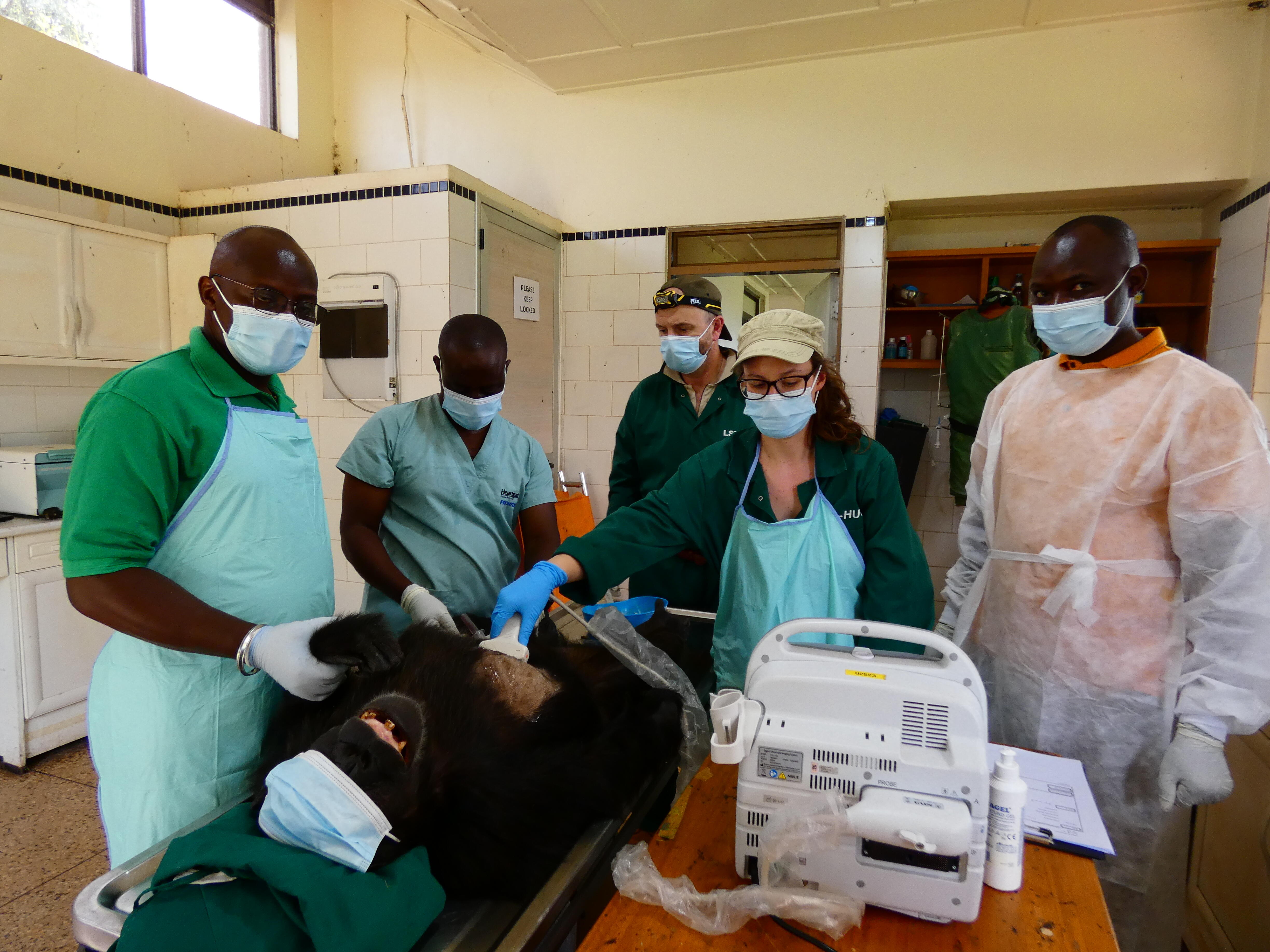
In a world increasingly impacted by climate change, global travel, and urbanisation, zoonotic diseases—those passed between animals and humans—are on the rise. Our MSc in One Health in Tropical Disease connects human, animal, and environmental health, preparing students with essential skills to tackle these urgent global health issues.
We've sat down with Course Director Dr Alexandra Juhasz to discuss the course and why it's crucial for health professionals addressing tropical diseases globally.
What is this course about?
In today’s worldwhere zoonotic diseases are emerging and spreading at an increasing rate due to climate change and other global challenges, an interdisciplinary approach that connects human, animal and environmental health is essential to fully understand this critical area.
Developing research-led knowledge and practical skills to tackle the most pressing global health challenges in tropical and resource-limited settings is exactly what our MSc in One Health in Tropical Disease will prepare you for.
Why is this course important?
As a veterinarian from Europe, I appreciate there are limited opportunities to gain in-depth information about tropical diseases for those trained or working in temperate climates at medical and nursing schools or as biologists and health practitioners.
As global travel continues to expand, international trade in tropical exotic animals increases, and humans and animals increasingly encroach on each other’s habitats through changing land use and urbanisation in tropical regions, tropical infectious diseases have a massive impact on human and animal health globally.
My passion for this course stems from enabling doctors, veterinarians and biologists to gain an understanding of these diseases, many of them zoonotic, allowing them to work in more global settings or to recognise these tropical infections when they present in more temperate climates through leisure travel or migration.
For students from tropical regions, the focus will be different—they see the challenges of these diseases firsthand and will benefit from training and research on how to effectively control and prevent them.
What makes this course different?
Our MSc One Health in Tropical Disease allows you to apply your learning from the perspective of the tropical regions of the world where the biological and ecological environment is unique, where resources may be constrained and changing land use and the impact of climate change are dynamic and challenging. The approach in these tropical regions allows for the differences in ecosystems, disease patterns and public health challenges which are unlike those in Europe or North America.
The interdisciplinary and applied approach prepares students for careers in public health, epidemiology, conservation, veterinary and medical practice, combining theory and practical hands-on learning with opportunities to work with LSTM’s hubs and partners in tropical regions. This preparation for real-world problem-solving and leadership in challenging environments is a major strength of the course.
What will students learn in this programme?
This MSc is a one-year full-time course.
You will explore a range of topics that are crucial to understanding and addressing One Health challenges. Modules include the principles of One Health, research methods, epidemiology, pathogen studies, and the impacts of climate change on disease transmission and hands-on training in laboratory and field epidemiology skills, will support your practical experience. Alongside the core areas you can choose to specialise in areas such as snakebite management, animal parasitology, and microbiology, allowing you to tailor your learning to specific interests and career goals.
What opportunities does the student project offer?
One of the most exciting aspects of this programme is the student research project. You can choose to undertake a project in the UK using LSTM’s state-of-the-art laboratories, in collaboration with our UK or international partners, or in tropical locations such as Malawi, Cameroon, Uganda and Zanzibar. You will learn to apply One Health principles in real-world settings, examining how human, animal, and environmental factors interact in disease transmission and control. Studies can focus on issues such as the impact of climate change, the role of urbanisation in disease spread, food security, and the control of neglected zoonotic diseases.
What career opportunities does this MSc open up?
Graduates of this programme will be equipped with the knowledge and skills needed to make a real impact in disease prevention, outbreak response, and sustainable health solutions, both in the field and in the research laboratory while addressing some of the most urgent health challenges of our time.
As a graduate you couldgo on to pursue a PhD in infectious diseases, epidemiology or public health, or take on a role in a global health organisation, NGO, government agency, or international research institution. There are also opportunities in public health policy, disease prevention, and outbreak response, as well as in conservation and veterinary fields focusing on wildlife and ecosystem health. Industry roles in biotechnology, pharmaceuticals, and epidemiology are also open to those with expertise in One Health. Whether students are looking to advance in academia, research, policy, or clinical practice, this MSc provides the foundation they need to succeed.
Why should students choose this MSc?
This MSc spans the breadth and depth of LSTM’s mission, placing tropical regions at the centre of One Health education. The focus is not just on learning about global health challenges but in meeting the experts currently working on these challenges, on having opportunity to experience the research firsthand, and in being part of the drive in developing practical solutions. You will be immersed in real-world research scenarios, gaining the knowledge, skills, and field experience needed to make a real impact. This is not just a degree—it’s an opportunity to become part of the next generation of One Health leaders, working to protect the health of people, animals, and ecosystems worldwide.
For more details about the programme and to apply, visit our course page today.